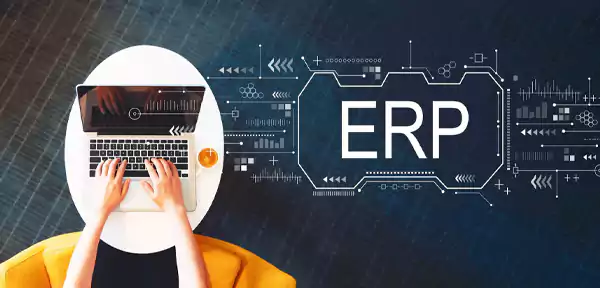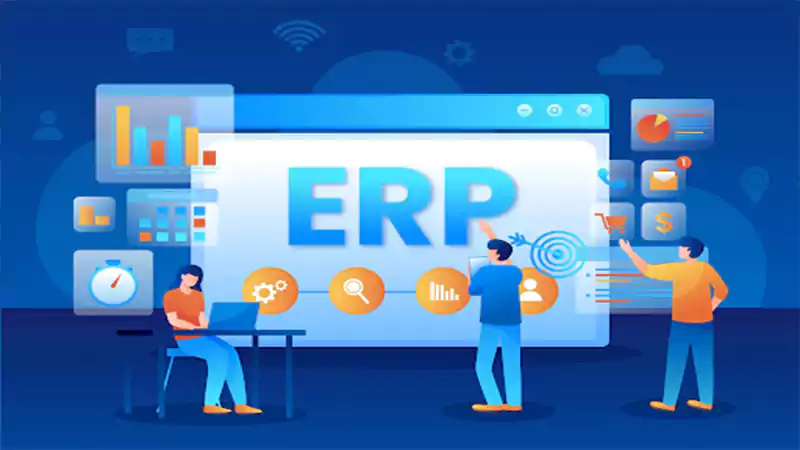https://examplewebsite.com/2024/09/erp-benefits-challenges-trends.html: Comprehensive ERP Guide
https://examplewebsite.com/2024/09/erp-benefits-challenges-trends.html provides a comprehensive overview of ERP systems, highlighting their benefits, challenges, and the latest trends. In today’s fast-paced business environment, effectively managing various operational functions is crucial. Enterprise Resource Planning (ERP) systems are essential tools for organizations looking to streamline processes, enhance decision-making, and achieve strategic goals.
Understanding ERP Systems by https://examplewebsite.com/2024/09/erp-benefits-challenges-trends.html

What is ERP?
Enterprise Resource Planning (ERP) involves integrated software systems designed to manage and streamline a company’s core functions. By consolidating various business processes such as inventory management, finance, human resources, and supply chain operations, ERP systems facilitate seamless data flow and operational efficiency.
Core Components of ERP Systems
- Financial Management: Oversees financial transactions, budgeting, and reporting to ensure financial health and regulatory compliance.
- Human Resources Management: Handles employee information, payroll, benefits, and recruitment, contributing to effective workforce management.
- Supply Chain Management: Manages the flow of goods from suppliers to customers, optimizing procurement, production, and distribution.
- Customer Relationship Management (CRM): Facilitates interactions with customers, manages sales processes, and enhances customer service.
- Inventory Management: Tracks inventory levels, orders, and stock movements, ensuring optimal inventory control.
- Project Management: Monitors project progress, resources, and timelines, ensuring successful project completion.
Evolution of ERP Systems to https://examplewebsite.com/2024/09/erp-benefits-challenges-trends.html
ERP systems have undergone significant evolution since their inception. Initially focused on automating manufacturing and accounting functions, they have expanded to integrate all aspects of business management. Early ERP systems were limited in scope, but today’s solutions leverage advanced technologies such as cloud computing, AI, and big data analytics.
- Early Developments: Initially, businesses used simpler systems like Material Requirements Planning (MRP) for inventory management. Over time, these systems evolved to incorporate broader business functions.
- Expansion and Growth: In the 1990s, ERP systems became more widespread, with major vendors like SAP and Oracle introducing comprehensive solutions that integrated finance, HR, and supply chain functions.
- Modern Advancements: Today’s ERP systems offer sophisticated features such as real-time analytics, cloud-based access, and customizable modules, enhancing their adaptability and functionality.
Benefits of ERP Systems
Implementing an ERP system can yield numerous advantages for an organization:
- Enhanced Efficiency: ERP systems automate routine tasks and streamline workflows, leading to increased operational efficiency and productivity.
- Improved Data Accuracy: Centralized data management reduces errors and ensures consistency, facilitating better decision-making and strategic planning.
- Better Collaboration: By providing a unified platform for data sharing, ERP systems enhance collaboration across departments and improve overall communication.
- Increased Visibility: ERP systems offer comprehensive reporting and analytics, allowing businesses to monitor performance, track key metrics, and gain valuable insights.
- Scalability: Modern ERP solutions are designed to grow with your business, accommodating changes and expansions seamlessly.
Challenges of ERP Implementation
Despite their benefits, ERP systems can present several challenges:
- High Costs: The expense of ERP systems includes software, hardware, customization, and ongoing maintenance. Businesses should evaluate these costs and consider the potential return on investment.
- Complexity: Customizing ERP systems to fit specific business needs can be complex and time-consuming. Working with experienced consultants can help manage this complexity.
- Change Management: Implementing an ERP system often requires significant changes to existing processes. Effective change management strategies are essential for overcoming resistance and ensuring smooth adoption.
- Data Migration: Moving data from legacy systems to a new ERP system can be challenging. Ensuring data accuracy and integrity during migration is critical.
- Ongoing Maintenance: ERP systems require regular updates and support. Allocating resources for maintenance and troubleshooting is necessary for continued effectiveness.
Best Practices for ERP Implementation
To maximize the benefits and address challenges effectively, consider these best practices:
- Define Clear Goals: Identify specific objectives and requirements before selecting an ERP system to ensure it aligns with your business needs.
- Engage Stakeholders: Involve key stakeholders from various departments in the ERP selection and implementation process to ensure the system meets diverse needs.
- Select the Right Vendor: Choose an ERP vendor with a strong track record, offering robust features and reliable support.
- Plan a Phased Approach: Implement the system in phases to manage complexity and address issues gradually.
- Provide Comprehensive Training: Ensure that all users receive adequate training to use the ERP system effectively.
- Monitor Performance: Regularly assess the ERP system’s performance and gather feedback to make necessary adjustments.
Future Trends in ERP Systems
The future of ERP systems is shaped by emerging technologies and trends:
- Cloud-Based Solutions: Cloud ERP offers flexibility, scalability, and remote access, making it increasingly popular among businesses.
- AI and Machine Learning: Integration of AI and machine learning enhances data analytics and automates tasks, improving decision-making.
- IoT Integration: Connecting IoT devices with ERP systems provides real-time operational insights and enhances asset management.
- User Experience: Future ERP systems will focus on user-friendly interfaces and personalized dashboards to improve usability.
- Advanced Analytics: Increased demand for sophisticated analytics tools will enable deeper insights and data-driven decision-making.
Conclusion: https://examplewebsite.com/2024/09/erp-benefits-challenges-trends.html.
https://examplewebsite.com/2024/09/erp-benefits-challenges-trends.html offers valuable insights into how Enterprise Resource Planning (ERP) systems transform organizational operations. ERP systems integrate various business functions into a unified platform, enhancing efficiency, decision-making, and collaboration. While implementing ERP systems brings numerous benefits, it also involves navigating challenges such as costs and complexity.
Understanding ERP principles and best practices will help you effectively utilize these systems, whether you’re deploying a new ERP solution or optimizing an existing one.
FAQs on https://examplewebsite.com/2024/09/erp-benefits-challenges-trends.html
Ans: ERP (Enterprise Resource Planning) integrates core business functions into a unified system, improving efficiency and data accuracy. Learn more at https://examplewebsite.com/2024/09/erp-benefits-challenges-trends.html.
Ans: Challenges include high costs, complexity, data migration issues, and change management. For solutions, see https://examplewebsite.com/2024/09/erp-benefits-challenges-trends.html.
Ans: Preparation involves setting clear goals, selecting the right vendor, planning, and training. For more details, visit https://examplewebsite.com/2024/09/erp-benefits-challenges-trends.html.
Ans: Components typically include financial management, HR, supply chain management, CRM, inventory, and project management. Discover more at https://examplewebsite.com/2024/09/erp-benefits-challenges-trends.html.
Ans: Future trends include cloud solutions, AI, IoT integration, and advanced analytics. For insights, check https://examplewebsite.com/2024/09/erp-benefits-challenges-trends.html.
- Understanding ERP Systems by https://examplewebsite.com/2024/09/erp-benefits-challenges-trends.html
- Evolution of ERP Systems to https://examplewebsite.com/2024/09/erp-benefits-challenges-trends.html
- Benefits of ERP Systems
- Challenges of ERP Implementation
- Best Practices for ERP Implementation
- Future Trends in ERP Systems
- Conclusion: https://examplewebsite.com/2024/09/erp-benefits-challenges-trends.html.
- FAQs on https://examplewebsite.com/2024/09/erp-benefits-challenges-trends.html










